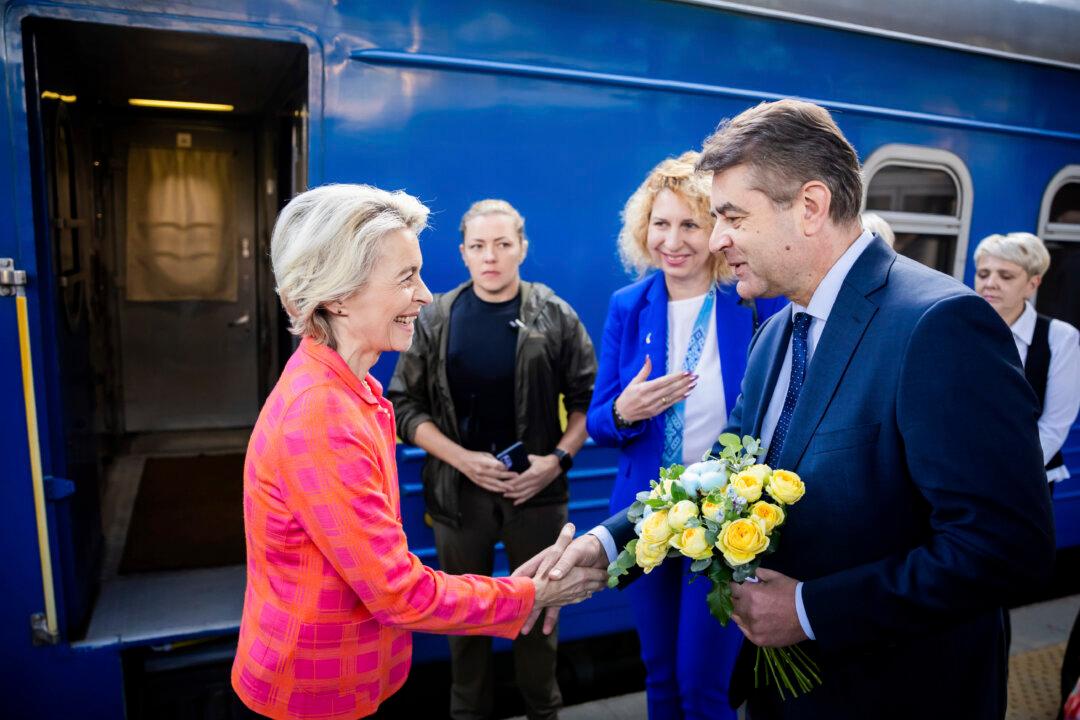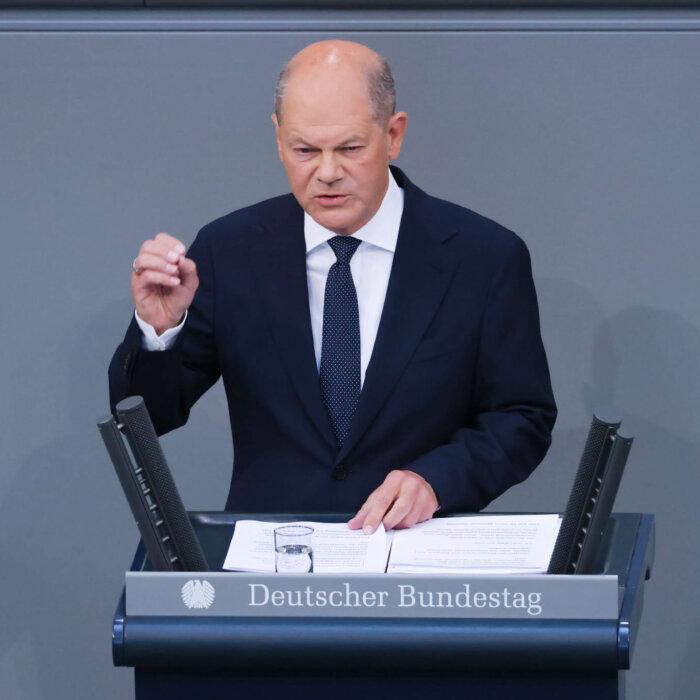The European Commission president arrived in Kyiv on Friday as the EU promises €160 million ($180 million) to help Ukraine prepare for the upcoming winter.
Ursula von der Leyen’s visit will focus on repairing and reconnecting the country’s war-damaged electricity grid and boosting its heating capacity as the cold weather draws in.
Around half of the war-torn nation’s energy infrastructure has been destroyed, and rolling blackouts leave parts of the east in darkness for four hours at a time.
Von der Leyden said it was as though all of Latvia, Lithuania and Estonia had lost electricity.
“Heating season starts in two weeks and Russia’s relentless attacks on Ukraine’s civilian energy infrastructure aims to inflict maximum damage,” von der Leyen said as she arrived in the capital for talks with President Volodymyr Zelenskyy. “We will help Ukraine in its brave efforts to overcome this.”
The aim is to help Ukraine decentralize its power grid, and to become less reliant on big power stations, which present easy targets for Russian forces.
Some 260 missiles struck in a massive bombardment of energy infrastructure in late August.
Europe has already sent more than 10,000 generators and transformers, as well as supplying small and more mobile gas turbines, all of which are harder for the Russians to hit and easier to repair if they do.
The harsh Ukrainian winter lasts from late October through to March, with January and February the coldest months.
The EU hopes to help supply around 25 percent of the 17 gigawatts of power that the country is likely to need through those five months.
One aim of the assistance is to provide an incentive for people to stay in the country, with around 4 million people have fled since the war began in February 2022.
The EU is providing assistance, such as short-term help to find a place to stay, jobs or education. But recently, the number of people taking flight has risen.
The commission, the EU’s executive branch, estimates that 10,000 more people are applying for help each week.
On Thursday, the commission announced it would provide an extra €160 million ($180 million) to help fortify Ukraine’s energy network.
A hundred million euros of that will come from the windfall profits the EU has earned from interest on frozen Russian assets.
Von der Leyen said the plan is to make “Russia pay for it through the revenue generated by their frozen assets.”
Denmark is also leading the charge on using the money to place orders for weapons and military equipment directly with Ukraine’s defense industry.
She and Zelenskyy will also discuss the use of loans organized by the Group of Seven major industrial powers to help bolster Ukraine’s conflict-ravaged economy, and weigh progress in Kyiv’s efforts to join the EU.
Her visit comes a day after the European Parliament, in a non-binding resolution, called on EU member states to “immediately lift restrictions on the use of Western weapons systems delivered to Ukraine against legitimate military targets on Russian territory.”
A failure by governments to agree to allow Kyiv to deploy donated long-range missiles undermines efforts by Ukraine to protect its cities and infrastructure, the MEPs agreed in a 425 -131 vote with 63 abstentions.
The resolution also called for more Chinese individuals and entities added to the list set up to prevent EU-based companies, third parties, and non-EU countries from skirting around sanctions.
The resolution also says EU countries should increase financing, boost humanitarian aid and do more to protect the airspace around Ukraine’s borders.
Meanwhile, Moscow has said that the West should stop supplying weapons and sponsoring “terrorist activity” if it wanted to send a signal it was serious about seeking an end to the war.
Foreign Ministry spokeswoman Maria Zakharova told reporters that a peace plan put forward earlier this week by Zelenskyy had nothing to do with settling the conflict.







